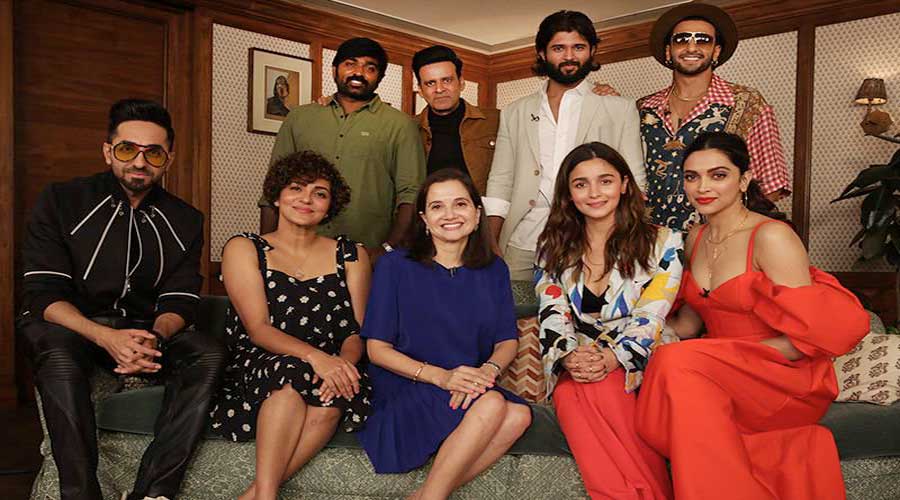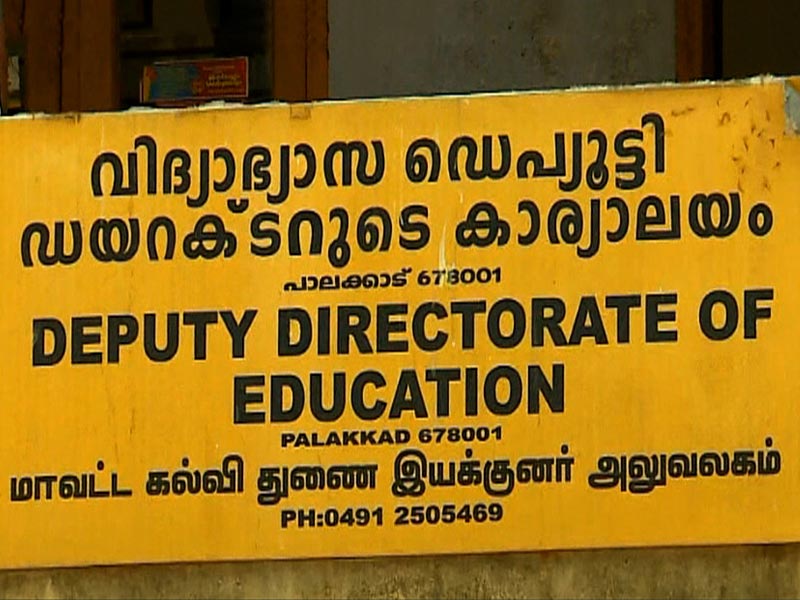A week ago, Film Companion had released a video of an actors’ roundtable hosted by Anupama Chopra, attended by Vijay Sethupathi, Parvathy Thiruvothu, Vijay Devarakonda, Ranveer Singh, Alia Bhatt, Deepika Padukone, Manoj Bajpayee and Ayushmann Khurrana. There was nothing really insightful about the conversation, except for Sethuapthi’s earnestness, Parvathy’s fervour, and Deepika’s support of Parvathy’s fervour, but it still became a hot topic of discussion in its aftermath. It was to do with a discussion that took place regarding cinema and its responsibility towards the society.
Parvathy was asked about her rule that she’d never work in a film that has an item number or presented a misogynistic worldview and she shared her opinion quite bluntly. It started with Alia Bhat bringing Todd Philips’ Joker into conversation while talking about cinema with troubled protagonists. Parvathy went a bit further and compared it with Arjun Reddy and talked about representation versus glorification.
The internet was quick to appreciate Parvathy and the way she handled herself while criticising a film whose main lead was present at the roundtable. But some felt it was unfair to Vijay Devarakonda that he was being asked questions about a film that was released two years ago. Nevertheless, the fact that he was at the table because of the film, I thought it’s only fair. Some people rightfully questioned Parvathy’s usage of the word ‘bipolar’ and she was quick to acknowledge her mistake.
I watched Joker only recently, and I would have preferred if Parvathy used her own film, Uyare, instead, to talk about a film’s visual grammar and point of view. Because Joker is just as controversial; in fact, it is almost as problematic and dangerous as Arjun Reddy because of how prevalent gun violence is in America. The Telegraph critic Robbie Collin had this to say: “Here is my opinion of Joker: I think it’s a very good film and I’m worried someone’s going to get killed.”
But this, in no way, takes away from all that Parvathy had to say about Arjun Reddy. In fact, there are many Indian films that tackle problematic stories with great ease. Imtiaz Ali’s Highway is a good example of a film that flirts with the grey without crossing the line. We do empathise with Mahabir and his traumatic childhood, but we also acknowledge that his anger is misplaced. And the tragic end, his story is met with, assures that despite the blooming romance, it is still a tragedy about two broken people and not a romance.
This is where Arjun Reddy falters. Arjun is not an anti-hero, he is the alpha male template we thought we had left behind. His actions, almost all questionable, are never met with consequences. A man whose year-long substance abuse ends in a day, comes out of it without a single health issue. Preethi, who had to suffer the consequences of his anger issues, also comes back to him, and this time there is a baby. He seems to get rewarded for all his actions in the end.
Moreover, I still don’t think it is wise to compare movies that originate from two different cultures. Yes, suggestible people exist everywhere and cinema is a potent influencer everywhere. But, the way cinema is consumed in India is totally different. For most Indian moviegoers, films are the only form of art that they willingly partake or can afford to indulge. If cinema is the only forum through which many Indians build their worldview, we have to acknowledge the responsibility this puts on the medium.
If you are a film journalist interviewing a commercial filmmaker and, if you ask him why he needs an item number in a thriller film, he will tell you that the audiences are different here. Purist take of genre cinema is not something we can afford, he’ll probably add. So, my question is, what happens to this understanding while making a film with problematic politics? Why bring Hollywood films to defend your cinema? Our audiences are still different, aren’t they?
Maybe it does feel wrong to just pick on a single film because there are many such movies. In fact, the same actor’s Geetha Govindham is just as problematic, if not more so. Then why Arjun Reddy? If you ask me, I think it’s because it is a good film. It had a gripping screenplay, great score, and immersive cinematography. The thing with good films is that they are effective in conveying exactly what they want to, to the viewer.
Our nation is riddled with scary statistics when it comes to female safety, and we have to acknowledge that cinema is the primary medium that defines and perpetuates our nation’s rape culture. So, what Parvathy said in the panel regarding cinema’s place and responsibility is not just valid, it is also of the utmost importance.
In the same roundtable, Vijay Devarakonda had this to say in defense of the film, “Just a film doesn’t decide your behaviour.”
True, none of us are saying that an evolved human being will watch this film and decide it’s more fun and lucrative to be a moron—even though the film seems to suggest that it is. But there are many other individuals who are hypocritical enough to talk about personal space only to forget all about it and kiss a strange woman without consent. These men will watch this film and see themselves in the glorified character and decide that their lifestyle isn’t just valid, it’s almost desirable. Not to speak of the impressionable boys watching it.
What’s even more troubling is that many young women who watch a film like Arjun Reddy may come to the conclusion that getting marked as theirs by a man is romantic. Films not just influence the behaviour of the abuser, they can also influence the women that have to go through it, and it would be devastating to know that a young woman recognises abuse as anything but that because of a film she watched.
Cover Image: Courtesy Twitter







